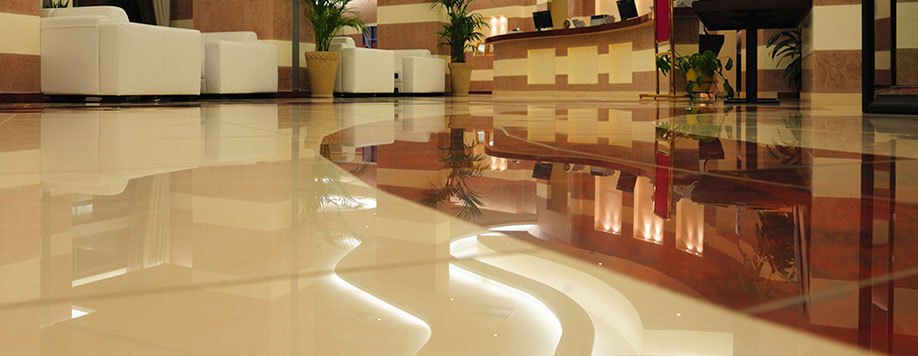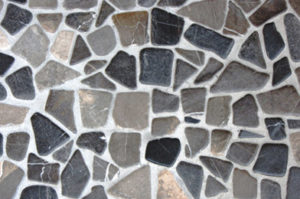



« Learn more about other chemicals used in Building and Construction
Epoxies are thermoset plastics made by the reaction of two or more industrial chemical compounds. Epoxy resins are used in a wide array of consumer and industrial applications because of their toughness, strong adhesion, chemical resistance and other specialized properties.
Epoxy resins are used in the manufacture of adhesives, plastics, paints, coatings, primers and sealers, flooring and other products and materials that are used in building and construction applications.
Most adhesives known as “structural” or “engineering” adhesives are epoxies. These high-performance adhesives are used to make laminated woods for decks, walls, roofs and other building applications, as well as in other products that require strong bonds to a variety of substrates, for example to concrete or wood. Epoxies can stick to wood, metal, glass, stone and some plastics, and are more heat- and chemical-resistant than most glues.
Epoxy resins also help to provide durable, high-gloss outdoor coatings, as well as sealers for concrete floors and other heavy-duty protective coatings used in industrial settings.
Resins are used for high performance and decorative flooring, such as terrazzo flooring, chip flooring, and colored aggregate flooring. These types of flooring are available in a wide range of colors and decorative patterns that are created by adding contrasting vinyl chips or colored quartz aggregate to the top epoxy layer. Epoxy flooring can also be augmented with paint chips, or other additives like polymer grit, that provide an anti-skid texture to a floor.
New technologies are enabling development of sustainable architectural surfaces and countertops made from a composite blend of epoxies, recycled glass, and other commonly discarded post-consumer materials. Using this technology, surfaces and countertops can be composed of up to 90 percent recycled materials and help builders attain LEED credits for their construction products.

Water-based epoxy paints dry quickly, providing a tough, protective coating. Their low volatility and clean-up with water make them useful for factory cast iron, cast steel, and cast aluminum applications, with far less risk from exposure or flammability than alternatives based on organic solvents.